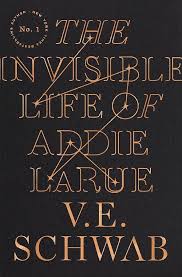Chapter XVI
byChapter XVI begins with Henry returning to a campus that has never quite felt like home, a place where he continues to feel like an outsider, despite the familiarity of the surroundings. He walks through the familiar halls, feeling more disconnected than ever, his mind occupied by a sense of unease and fear. This feeling of never fully belonging, of always being on the outside looking in, weighs heavily on him, even as he approaches the dean’s office. It’s a place that holds both disappointment and expectation, and as he steps inside, Henry is confronted with an offer that could change everything. The last time he had been here, Dean Melrose had nearly expelled him for his lack of direction and commitment. Now, to his surprise, the dean is offering him a once-in-a-lifetime opportunity: a tenure position at the theology school, a position that many would fight for, but one that fills Henry with more confusion than excitement. The weight of this unexpected opportunity forces Henry into a state of deep introspection, causing him to confront the uncertainty about his future and the lingering question of what he truly wants out of life.
For years, Henry’s academic journey was driven by a passion for learning and an eagerness to understand the world, but as the years went by, that sense of excitement began to fade, replaced by the pressure to make concrete decisions about his future. What once felt like an exciting intellectual pursuit now feels more like an obligation, and as the opportunity to teach becomes more real, Henry finds himself filled with doubt. He wonders whether he is truly qualified for the role, questioning his own beliefs and his ability to guide others in a field that demands certainty. His admission to the dean that he doesn’t “believe in God” is a rare moment of vulnerability, revealing the internal conflict that he’s struggled with for years. Surprisingly, the dean does not react with judgment, instead accepting Henry’s position and valuing his capacity for critical thought over personal faith. However, for Henry, this acceptance only deepens the inner conflict, as he grapples with the tension between what he feels he should do and who he truly is. The idea of fitting into an academic role defined by external expectations—without fully aligning with its values—feels like a compromise that he’s unsure he’s willing to make.
Leaving the dean’s office, Henry is left to grapple with the heavy weight of the offer and what it signifies for his future. He steps back into the routine of his life, still uncertain about whether he can truly accept the opportunity that’s been presented to him. His thoughts are clouded by the constant tug of societal expectations, the pressure to meet external standards while simultaneously yearning for authenticity and personal fulfillment. The bottle of whiskey, his usual companion in moments of solitude, offers a temporary distraction, but it does little to ease his internal conflict. Henry is caught in a cycle of feeling trapped by the roles others expect him to play, and yet he longs for something more meaningful—a life that reflects who he truly is, rather than who others want him to be. Even in his interactions with those around him, from minor flatteries to significant life choices, he is reminded of the emptiness that arises when one’s identity is shaped solely by the expectations of others. This constant push and pull between meeting others’ expectations and maintaining a true sense of self creates an ongoing struggle, highlighting the difficulty of reconciling external pressures with personal desires.
The chapter becomes a poignant exploration of Henry’s internal battle between societal roles and individual identity. As he faces the dilemma of whether to accept the dean’s offer or turn it down, he reflects on his life’s trajectory and the conflict between what he’s expected to do and what he feels he should want. His desire for meaningful relationships, authenticity, and inner peace are challenged by the external world that constantly demands something else from him. The deeper he delves into his own desires, the clearer it becomes that his struggle is not just about choosing between a job opportunity and staying true to himself. It’s about reconciling the two halves of his identity: the person he is when he’s alone, and the person he is when surrounded by the expectations of society. The juxtaposition of his internal yearning for truth and connection against the backdrop of external success and approval forms the core tension of the narrative, inviting the reader to consider how we all struggle with the pressure to fit into societal molds and how hard it can be to stay true to our authentic selves. In this chapter, Henry’s conflict becomes a universal one—an exploration of identity, the desire for validation, and the challenge of finding fulfillment in a world that often values conformity over authenticity.


